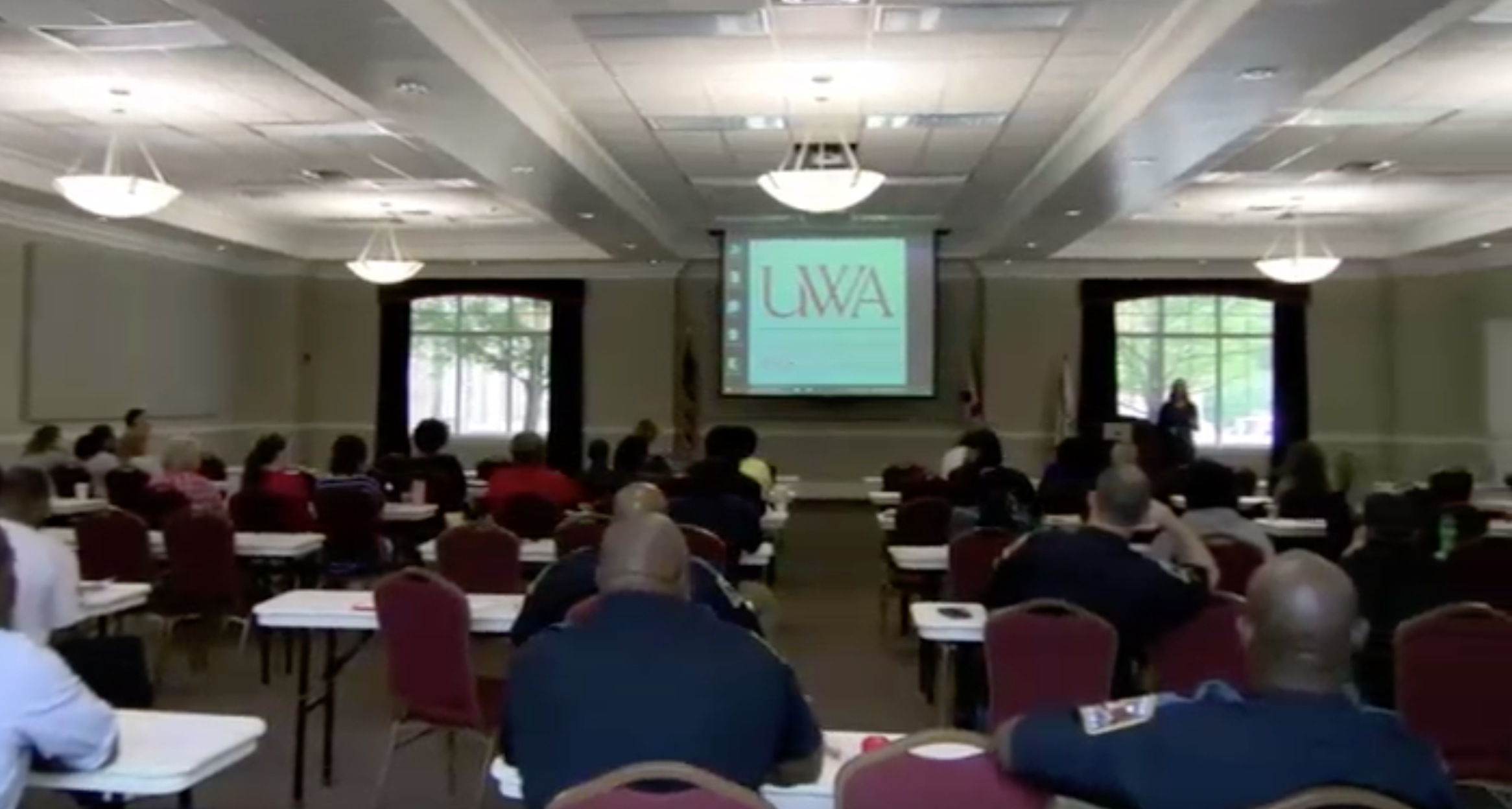Post by: Konstantin Oshchepkov
This summer, I am clerking with the office of Alabama Attorney General. The case I am working is against a company that operates Asian massage parlors involved in human trafficking. Alabama, like many other U.S. states, is increasingly confronted with the problem of human trafficking. But adequate and comprehensive training of law enforcement officers to spot and investigate human trafficking is yet to be put together. Assistant Attorney General Audrey Jordan and I traveled to the University of West Alabama to attend a law enforcement training on human trafficking. Besides Ms. Jordan, speakers that day were a lieutenant from Tuscaloosa Police Department, an HSI agent, a researcher from the University of Alabama, and a survivor of human trafficking.
Human trafficking is a rapidly growing problem in the U.S. and is often referred to as Modern-Day Slavery. It is estimated from the records of the slave traders in America that around 12.5 million slaves were sold during the 400 years of slave trade. In contrast, today, the International Labor Organization reports that there are 40.3 million victims of human trafficking in the world. Chris Lim, director of the Alabama Uniform Integrated Human Trafficking Initiative at the University of Alabama, estimates that there are 6,356 victims of human trafficking in Alabama alone on any given day—a large number for a state with population of 4,487,871.
Human trafficking is a lucrative and at the same time low-risk crime, said Audrey Jordan, Assistant Attorney General of Alabama. Although sting operations lead to detention and arrests, this crime is often not prosecuted. One big reason is that the victims are not willing to testify as witnesses against the traffickers because of fear and shame. Stockholm syndrome (also called trauma bonding) is another reason.
It is often hard to identify the victim of human trafficking. The image of a human trafficking victim that the public usually gets is one who is bound in chains and is held in a locked room. But often, the coercion is not physical but mental. Many of the victims have freedom of movement and “willingly” engage in illicit activity. The perpetrators brainwash the victims whose mentality is changed through manipulation and deceit. Because of the manipulation, the trafficked persons do not perceived themselves as victims. It is only after the rescue that the victims realize that they have been victimized.
To many, it is shocking to hear that about 80% of victims of human trafficking in America are home-grown—they were born and raised in the U.S., said Lieutenant Darren Beams from the Tuscaloosa Police Department who serves as the Commander at the West Alabama Human Trafficking Task Force. It is also shocking to hear that familial trafficking is very common: mothers and fathers sell or exploit their children for money and drugs.
It takes, on average, about 10 contacts with police before victims open up, which makes it hard to detect situation where trafficking is taking place. The victims are taught by the traffickers how to behave around police and strangers. They are not to make eye contact or talk to anyone. The victims know that they are constantly being watched.
Changes were made to the Alabama Human Trafficking statutory provisions last year. With new authority, the Attorney General has the power to bring civil suits if there is reasonable belief that an individual or a business is involved in human trafficking.
The Alabama human trafficking statutes consider persons under the age of 19 to be minors. If the victim is a minor, the prosecutor does not have to prove that force, fraud, or coercion took place to successfully prosecute for trafficking. The Alabama law also has provisions to hold owners of business establishments (such as motels) accountable if the owners have knowledge or should have known that human trafficking is taking place at the establishment.
There are non-governmental organizations that help the survivors of human trafficking. Alabama-based Christian organization called the WellHouse provides safe accommodations to survivors of human trafficking. The staff and volunteers provide schooling, therapy, counseling, and, most importantly, a safe home. Dixie, one of the survivors and a graduate of the WellHouse program, describes the WellHouse as a place where the women can learn their value and move beyond the identity of being a victim. This is a place of restoration. Her wish is that more people would show love, compassion, and patience to the victims of human trafficking. Her warning to the young: realize that there are “real monsters in the world”; they look nice and act polite, but their intentions are evil.
This post was written by Konstantin Oschepkov, an intern with the Center for Global Justice. The views expressed in this post do not necessarily reflect those of Regent University, Regent Law School, or the Center for Global Justice.



